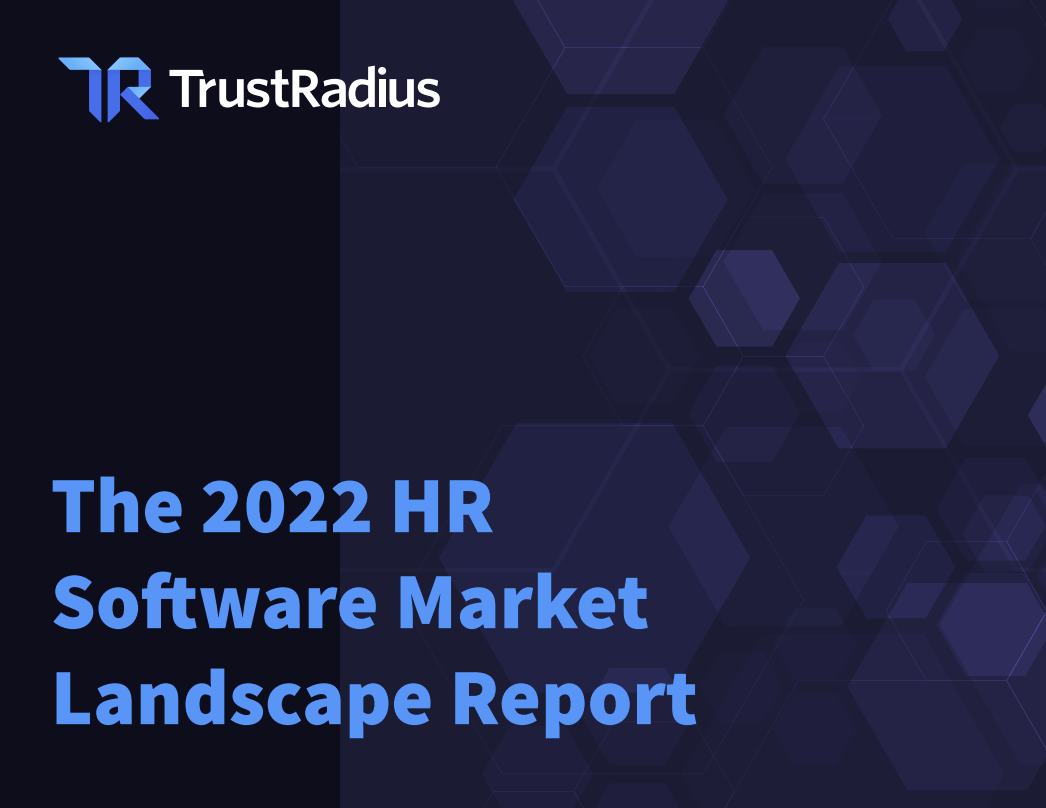As with all other aspects of work, Covid-19 changed the HR industry drastically. Major shifts in remote work and the Great Resignation forced HR professionals to spend more time recruiting, onboarding, and offboarding. To effectively deal with these changes, HR professionals are relying even more on technology and growing their HR tech stack. Data collected in TrustRadius’s HR Trends Survey indicates that 55% of HR professionals plan to spend more on HR technology this year. Of those, 48% are spending more in order to upgrade their existing tech stack, and 38% are purchasing new tech.

With those statistics in mind, the 2022 HR Software Market Landscape Report examines which products HR professionals are using, and providing feedback on, as we move into 2022. This report gives details about product capabilities, market segments served, links to pricing information where available, and more.
Most represented in the report are software solutions with HR management at their core. These products are ideal for buyers who want to complete multiple HR tasks within a single platform. The time and cost savings offered by these products are likely appealing to HR professionals looking to optimize their processes. As identified in the HR Trends Report, HR professionals are now recruiting, onboarding, and offboarding employees entirely remotely.
This new work environment combined with the turnover associated with the Great Resignation means that HR professionals are busier than ever. Accessing information in one HR management platform can save time for HR teams and employees alike. Streamlining multiple tasks in one place can also help HR and IT professionals adapt to current and future changes more rapidly, as there will be fewer systems and processes to update.
Also heavily featured in this report are Applicant Tracking Systems (ATS) and Corporate Learning Management products. Many HR Management products have these abilities, but they are often not as robust as a standalone product. As such, many HR professionals rely on individual, specialized products for these tasks. Many standalone Applicant Tracking Systems have features aimed at reducing hiring bias and are designed to help companies with their diversity, equity, and inclusion (DEI) efforts. These capabilities are generally absent or less built-out in HR Management products, so companies prioritizing DEI would do well to invest in a separate ATS solution.
Similarly, corporate Learning Management System (LMS) tools often offer pre-existing content libraries that can make onboarding and training more efficient. These standalone products allow for HR teams to work with managers to share responsibility for onboarding and training tasks. Manager participation in onboarding is linked with higher retention, which is even more vital in today’s work environment.
While some of this functionality is available in HR Management products, the existing content libraries, increased flexibility, and ease of use of standalone LMS products can make them worth the extra investment, particularly for larger businesses.
Our methodology for determining relevant HR software going into 2022 is discussed in depth in the report, but the 57 products that qualified demonstrated both vendor and buyer engagement on TrustRadius.com. TrustRadius receives more than 1.2 million unique visitors per month, and tech buyers spend more time evaluating purchase decisions here than on other platforms. Our in-depth reviews average at least 400 words, providing thorough information and feedback to buyers and vendors alike.
We’re confident that these are the software products HR professionals are actually using. This report will prove useful to HR Professionals looking to expand or upgrade their existing tech stack.
To learn about these products or their capabilities, applications, and pricing, download the full 2022 HR Software Market Landscape Report.
[adsanity_group align=’alignnone’ num_ads=1 num_columns=1 group_ids=’15192′]
Need Any Technology Assistance? Call Pursho @ 0731-6725516







